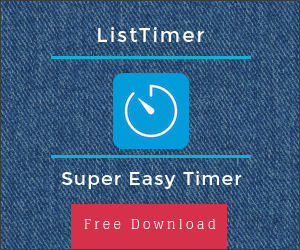I believe one of the next major social issues will be overwork caused by collaborating with AI. I’ve already experienced it over the past few months, so I’d like to explain what it feels like.
New technologies always change how we live and work, and with them, new problems emerge.
When the internet spread, Nicholas Carr wrote about how Google search was reshaping our brains and how humanity’s capacity for deep thought was declining.
When smartphones spread, books like The Smartphone Brain described how smartphone dependency was eroding our ability to concentrate.
And now it’s AI. Since AI is even more powerful than the internet or smartphones, its impact will be even greater.
Even the everyday AI tools used by ordinary people—for research, searching, or advice—have noticeable effects. But here, I want to focus on a work-related issue: the overwork problem caused by background AI agents.
As I wrote in my previous article, IT workers—especially engineers—tend to use AI heavily, and so they’re feeling the stress earlier than other professions.
Anyone who’s used background agents like Claude Code extensively in parallel has likely experienced this. But since such people are still in the minority, I want to explain how exhausting this overwork problem really is.
The Rise of Background Agents
Over the last few months, tools like Claude Code have exploded in popularity in tech circles. ChatGPT and Google have similar systems—AIs that work away in the background, steadily completing tasks.
They can handle quite difficult programming tasks, taking 10–20 minutes of dedicated processing time. Unlike quick-reply AIs, these agents take longer but provide higher-quality results because they better understand the project context and instructions.
At first, you might think: Great! While the AI works, I can relax, play games, or read manga. But that’s not how it works—because you can run multiple agents in parallel.
Imagine you’re the head chef of a restaurant. You have assistants A, B, C, D, and E, all working at the same time.
While A is creating a new dish and asking you to taste it, B is finishing the prep work and asking for feedback, and C is done cleaning but wants approval to buy new tools.
You don’t have to do the physical work yourself, but you do have to constantly review, plan, and give instructions. Your brain is running at full throttle. It’s exhausting.
After a few hours of this, you’re completely drained. And if you stop giving instructions, all the agents just sit idle. That makes you feel like you’re wasting valuable time—like owning prime real estate in downtown Tokyo but only keeping your shop open for a few hours a day.
The Trap of Endless Work
To avoid waste, you might even assign tasks before logging off, letting the agents continue while you’re away.
But then, even after work hours, progress alerts keep pinging your phone: “This part is finished—what should we do next?”
Instead of freeing you, AI ends up pulling you into a startup-CEO lifestyle—where you’re constantly under pressure, never fully switching off, always with tasks lingering in the back of your mind.
You might think: Well, one day AI will be smart enough to make autonomous decisions without my input. But will that really solve it? Since we demand both intelligence and speed, faster AI may simply mean you’ll face more “All done!” notifications, not fewer.
I fell into this trap myself—before shutting down for the day, I’d assign final tasks to background agents, thinking it was efficient. But then I’d get a notification saying “Task complete!” after hours, and I’d feel compelled to review it and queue up the next one. The loop repeated endlessly.
Eventually, I found myself stuck in tunnel vision—constantly thinking about work, unable to step back and see the bigger picture.
The Solution: Clear Boundaries
That’s why I’ve returned to a strict rule: limit my work hours, and once the day is done, shut down the AI agents completely. No exceptions.
The result has been refreshing. I can now enjoy my evenings, carve out time for studying new things, and even got around to writing this blog post again for the first time in a while.
*I've made Text-to-Speech, Money Tracker, and Timer apps. About Me.
